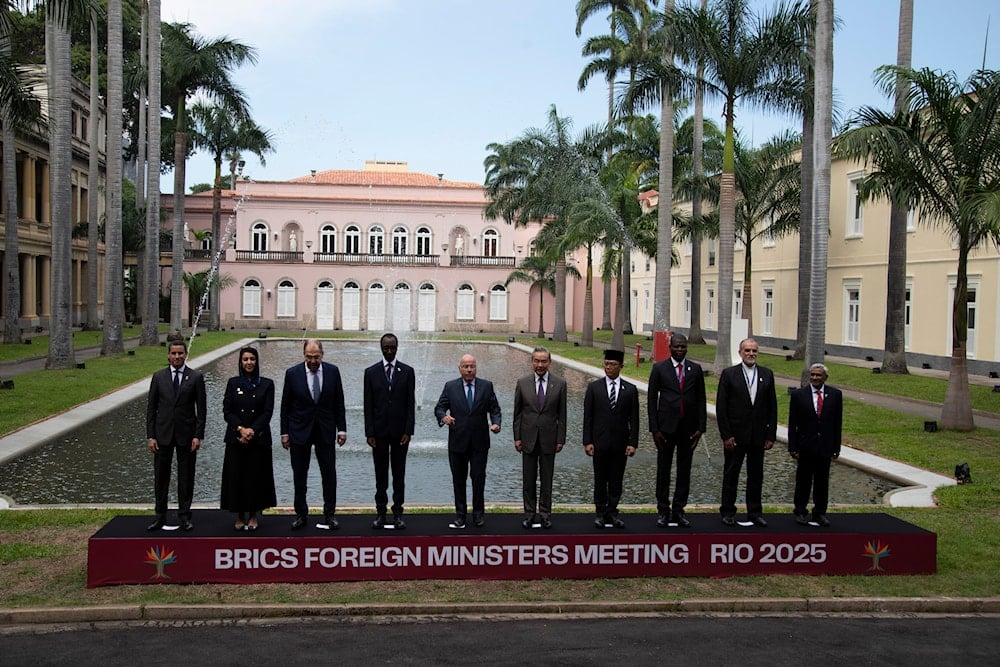About 24% of BRICS investment transactions made in national currencies
BRICS New Development Bank Chair Dilma Rousseff says 24% of investment transactions now use national currencies, as the bank backs $40 billion in projects.
-

Government representatives pose for a group photo for the BRICS foreign ministers' meeting at the Itamaraty Palace in Rio de Janeiro, on April 28, 2025. (AP)
About 24% of investment transactions and 31% of capital formation operations by the BRICS New Development Bank are now conducted in national currencies, according to the bank's chair, Dilma Rousseff.
The announcement was made on Tuesday during the China–Community of Latin American and Caribbean States (CELAC) Forum held in Beijing.
"The use of local currencies has become the New Development Bank's distinctive feature," Rousseff stated, highlighting the shift away from reliance on the US dollar in intra-bloc financing.
The use of national currencies in transactions is seen as a strategic step toward enhancing financial sovereignty among BRICS and other developing nations.
Rousseff emphasized the rising share of capital operations handled in local currencies, which she said reflects the bank’s unique role in financial innovation among emerging economies.
The BRICS bank has so far approved 122 investment projects with a total value of approximately $40 billion.
According to Rousseff, the institution is witnessing growing interest from states outside the original BRICS members, signaling its evolution into a broader platform for Global South cooperation. "This strengthens the bank's role as a platform for cooperation between states of the Global South," she noted.
$40 billion in projects approved
The bank's funding spans infrastructure and sustainable development initiatives across BRICS and other developing countries.
With more nations expressing interest in joining, the bank's expansion further enhances its influence in shaping alternative financial mechanisms beyond Western-dominated institutions.
While there has been ongoing dialogue among BRICS nations on expanding settlements in national currencies and even creating a common currency, no definitive decisions have been made.
Earlier in February, Brazilian President Luiz Inacio Lula da Silva stated that BRICS, under Brazil's presidency, would seek alternative platforms for payment settlement among member states, reinforcing the bloc’s push for financial autonomy.
BRICS may revisit single currency: Lavrov
Late last month, in an interview with the Brazilian newspaper O Globo, Russian Foreign Minister Sergey Lavrov said that discussions about creating a single currency for BRICS could resume once the appropriate financial and economic conditions are established.
He explained that "It would be premature to discuss a transition to a single currency for BRICS," adding that "We can come back to the question about a common currency or a single payment unit for BRICS once the necessary financial and economic conditions are in place."
Lavrov noted that BRICS countries are currently collaborating to develop a payment and settlement system to handle cross-border transactions among member states. This includes efforts to raise the share of national currencies in mutual trade.
The Russian foreign minister also underlined that de-dollarization has become a prominent global trend, stating it is "attributable to the lack of trust towards the Western-led international financial institutions."

 3 Min Read
3 Min Read










